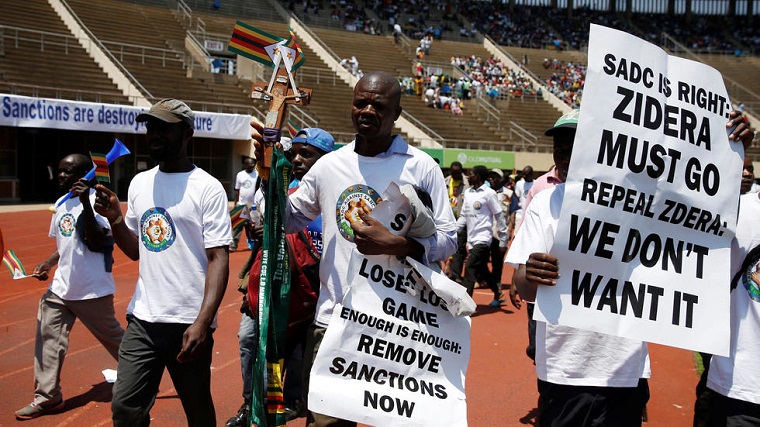 “When it comes to Zimbabwe and sanctions, our sanctions there target human rights abusers and those who undermine democratic processes or facilitate corruption. I want to be very clear that these sanctions do not target the Zimbabwean people. Zimbabwe’s economic ills, we know, are caused by leaders, those leaders abusing power, not US sanctions. Our sanctions target only 83 individuals and 37 entities. We review our sanctions list regularly to acknowledge developments in Zimbabwe.
“When it comes to Zimbabwe and sanctions, our sanctions there target human rights abusers and those who undermine democratic processes or facilitate corruption. I want to be very clear that these sanctions do not target the Zimbabwean people. Zimbabwe’s economic ills, we know, are caused by leaders, those leaders abusing power, not US sanctions. Our sanctions target only 83 individuals and 37 entities. We review our sanctions list regularly to acknowledge developments in Zimbabwe.
“US sanctions do make it more difficult for targeted individuals and entities to access funds through the global financial infrastructure. Sanctions do not target Zimbabwe’s banking sector, but rather ensure that sanctioned individuals and entities cannot use the US financial system to enjoy their ill-gotten gains. To be very blunt, blaming US sanctions for Zimbabwe’s problems detracts from the core issues of better governance that are required in Zimbabwe, and to that end, Zimbabwe must make reforms consistent with its constitution, with its international obligations, and with its other commitments.”- US State Department spokesman Ned Price responding to a question from Pearl Matibe.
This is the yarn that the United States has been spinning for the past 20 years but unfortunately, some Zimbabweans are buying that. Like abused wives, who blame themselves for being battered by their husbands, some Zimbabweans are singing the US tune and blaming the Zimbabwe government, and not sanctions, for the country’s woes.
Although the United States says its sanctions on Zimbabwe do not hurt the poor, studies on effects of sanctions done by American academics say that even if targetted, US sanctions hit the poor hardest.
Besides, how can the United States claim to be targetting 83 individuals and 37 entities when the Zimbabwe Democracy and Economic Recovery Act states that none of the international financial institutions and multilateral development banks can extend loans to Zimbabwe without the approval of the United States President?
The banks are listed as:
- The International Bank for Reconstruction and Development (World Bank)
- The International Development Association
- The International Finance Corporation
- The Inter-American Development Bank
- The Asian Development Bank
- The Inter-American Investment Corporation
- The African Development Bank
- The African Development Fund
- The European Bank for Reconstruction and Development, and
- The Multilateral Investment Guaranty Agency.
Seung-Whan Choi and Shali Luo of the University of Chicago argue that sanctions are a foreign policy tool meant to coerce target governments to improve things like human rights violations but the “economic pain caused by economic sanctions is likely to be most painful for the poor because such external economic shocks often drive their living standards further below subsistence levels”.
Continued next page
(231 VIEWS)

